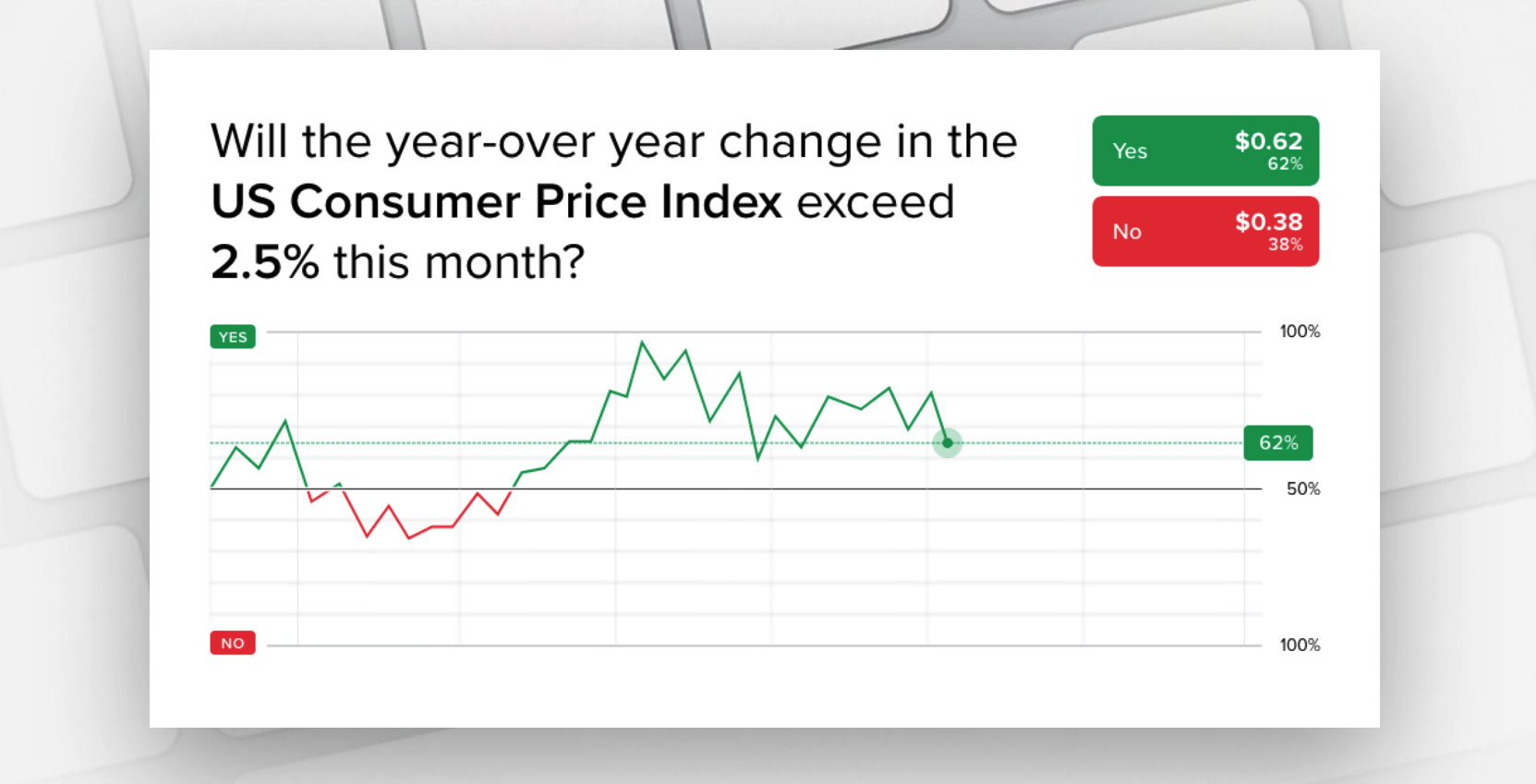 a Hedge Fund" width="" />
a Hedge Fund" width="" /> a Hedge Fund" width="" />
a Hedge Fund" width="" />
Have you ever considered starting your own hedge fund? If you're interested in finance and investing, it can be a tempting prospect. After all, hedge funds are known for generating impressive returns and providing a path to financial freedom.
However, there's more to starting a hedge fund than just earning profits. In fact, it can be a complex and challenging process, requiring careful planning and attention to detail. But don't let that discourage you! With the right approach and preparation, you can build a successful hedge fund and achieve your financial goals.
In this blog post, we'll explore the key steps and considerations involved in starting a hedge fund, so you can make informed decisions and set yourself up for success.
This blog covers:
The hedge fund industry implies such strategies that are created with a proper market analysis and backtesting that includes risk-adjusted return.
Let us find out a few more aspects of the hedge fund industry such as:
A hedge fund is an investment fund which implements trading strategies to help earn the maximum risk-adjusted returns for all its investors as soon as possible.
Since the focus is on short-term gains, hedge funds are known to use borrowed or leveraged funds to maximise the returns for the investors.
Because of the risk that leveraged funds are associated with, hedge funds in the U.S.A and Europe had to be regulated during the financial crisis of 2007-08 ⁽¹⁾. The main reason for the crisis was the housing bubble that led to a lot of people buying newly-built houses predicting a boom in the housing sector.
Instead, eventually US house prices began to fall and there were a huge number of borrowers that were unable to repay their loans.
Hedge funds are mainly of four types and each is targeted at a particular kind of situation or circumstance for ensuring good returns. For example, global hedge funds try to find the opportunities from the market price fluctuations caused by a political or an economic event. The political event may be an expected increase or decrease of prices due to the anticipated change of government etc.
Now, let us discuss each type of hedge fund in brief detail. These different types of hedge funds are:
The research ⁽²⁾ shows that from 1993 onwards, hedge fund capital under management has been growing at an annualised compound growth rate of 26%.
Also, a recent study ⁽³⁾ shows that the hedge fund grew at a lesser rate during the COVID-19 pandemic as compared to before the same. There were only around 900 new funds launched in 2022 compared to a record of more than 2000 in each of the previous two years according to a new analysis.
There are some skills that are the prerequisites for starting your own hedge fund, and these are:
Starting a hedge fund requires you to hold an important skill, that is, the skill to do quantitative analysis. For acquiring this skill, one can opt to learn economics or finance.
Portfolio management is most integral to an individual starting a hedge fund. You must be ready to manage investments for a hedge fund since it requires a lot of past experience in managing invested capital.
In order to be able to discuss with the investors aptly, you must have a sound knowledge of the analytical and technical aspects of the hedge fund. This knowledge will help you have a word with your investors in layman terms.
Some knowledge of mathematics and statistics may be needed for applying various quantitative methods in your work. Hence, the mathematical and statistical knowledge is a must.
Managing risks is an important part of a hedge fund since hedge funds may have a high-risk nature which implies higher the risks, higher the returns.
Apart from the above-mentioned skills or prerequisites, the individual starting a hedge fund must have enough capital and knowledge of the legal structure required.
Now, let us see the steps to start a hedge fund which include the following:
One of the most important steps for a hedge fund startup with respect to the beginning period is an investment strategy. The strategy is the most important factor of success or growth potential for any hedge fund. The investment strategy is usually created by the hedge fund owner or the manager.
While formulating the trading strategy, the nature and place of its investors and the total amount of assets expected to be raised are taken into special consideration.
Hedge funds are structured on the following factors:
There are different types of fund structures and may vary based on geography. Some of the fund structure types, say in the U.S, are:
Side by side
In the side-by-side domestic structure, U.S investors invest in a limited partnership organised in their country. A side-by-side hedge fund runs parallel to a structure which is located in a foreign location and is usually known as the offshore structure. The offshore hedge fund also follows the same strategy as the domestic fund.
This implies that the side by side structure aims at achieving an equivalent performance return in both funds.
Also, this assumes the similar investment strategies for both domestic and offshore funds and the trade executions are usually on the basis of capital in each fund. Both the hedge funds are also responsible for paying their own expenses.
The offshore is used for non-U.S investors and U.S tax exempt investors also to avoid Unrelated Business Taxable Income (UBTI) which usually shows up if the fund buys securities on margin.
Master feeder
A typical master-feeder structure consists of three entities. It consists of a master fund, usually domiciled in an offshore location, and two feeder funds, one a U.S domicile and the other an off-shore.
The criteria is that the feeder funds always invest the assets in the master fund. Then, the master fund makes all the investments and is accountable for the same.
Each feeder fund executes the investments on the basis of their capital balances each.
Similarly, the expenses that are borne by both the funds are always paid by the master fund. The non-resident or non-U.S investors prefer to not expose themselves to U.S income tax.
Standalone
Standalone fund structures invest without the feeders. This is the most common structure for offshore managers with no U.S presence or only those U.S residents who want to exempt the taxes.
Stay tuned for the second installment to learn about the legal and regulatory requirements.
Originally posted on QuantInsti blog.
If you have a general question, it may already be covered in our FAQs. If you have an account-specific question or concern, please reach out to Client Services.
2 thoughts on “How to Start a Hedge Fund”
Leo Newton July 22, 2023 at 5:57 pm Great article! Interactive Brokers July 31, 2023 at 4:26 pm Great article!Information posted on IBKR Campus that is provided by third-parties does NOT constitute a recommendation that you should contract for the services of that third party. Third-party participants who contribute to IBKR Campus are independent of Interactive Brokers and Interactive Brokers does not make any representations or warranties concerning the services offered, their past or future performance, or the accuracy of the information provided by the third party. Past performance is no guarantee of future results.
This material is from QuantInsti and is being posted with its permission. The views expressed in this material are solely those of the author and/or QuantInsti and Interactive Brokers is not endorsing or recommending any investment or trading discussed in the material. This material is not and should not be construed as an offer to buy or sell any security. It should not be construed as research or investment advice or a recommendation to buy, sell or hold any security or commodity. This material does not and is not intended to take into account the particular financial conditions, investment objectives or requirements of individual customers. Before acting on this material, you should consider whether it is suitable for your particular circumstances and, as necessary, seek professional advice.
Hedge Funds are highly speculative, and investors may lose their entire investment.


IBKR ForecastTrader lets you use exchange-listed Forecast Contracts1 to trade your opinion on Yes or No questions on economic and climate indicators, plus you’ll earn 4.83% APY 2 on your investment with an incentive coupon.
Get updates on podcasts, webinars, courses, and more from our IBKR pillars.
View the latest financial news articles from the top voices in the industry.
Get updates on podcasts, webinars, courses, and more from our IBKR pillars.
For those wanting to trade markets using computer-power by coders and developers.
Hear about the latest tools and techniques from our own IBKR API staff.
© 2024 Interactive Brokers, LLC
The risk of loss in online trading of stocks, options, futures, forex, foreign equities, and fixed income can be substantial. Before trading, clients must read the relevant risk disclosure statements on IBKR's Warnings and Disclosures page.
The analysis in this material is provided for information only and is not and should not be construed as an offer to sell or the solicitation of an offer to buy any security. To the extent that this material discusses general market activity, industry or sector trends or other broad-based economic or political conditions, it should not be construed as research or investment advice. To the extent that it includes references to specific securities, commodities, currencies, or other instruments, those references do not constitute a recommendation by IBKR to buy, sell or hold such investments. This material does not and is not intended to take into account the particular financial conditions, investment objectives or requirements of individual customers. Before acting on this material, you should consider whether it is suitable for your particular circumstances and, as necessary, seek professional advice.
Securities or other financial instruments mentioned in the material posted are not suitable for all investors. The material posted does not take into account your particular investment objectives, financial situations or needs and is not intended as a recommendation to you of any particular securities, financial instruments or strategies. Before making any investment or trade, you should consider whether it is suitable for your particular circumstances and, as necessary, seek professional advice. Past performance is no guarantee of future results.
Any information provided by third parties has been obtained from sources believed to be reliable and accurate; however, IBKR does not warrant its accuracy and assumes no responsibility for any errors or omissions.
Any information posted by employees of IBKR or an affiliated company is based upon information that is believed to be reliable. However, neither IBKR nor its affiliates warrant its completeness, accuracy or adequacy. IBKR does not make any representations or warranties concerning the past or future performance of any financial instrument. By posting material on IBKR Campus, IBKR is not representing that any particular financial instrument or trading strategy is appropriate for you.
Any trading symbols displayed are for illustrative purposes only and are not intended to portray recommendations.
Please note that any advertisement has not been reviewed by the Monetary Authority of Singapore.
This site is protected by reCAPTCHA and the Google Privacy Policy and Terms of Service apply. If you have any questions or comments, or are interested in becoming a contributor to the IBKR Campus, please contact us here.
Is a member NYSE - FINRA - SIPC and regulated by the US Securities and Exchange Commission and the Commodity Futures Trading Commission. Headquarters: One Pickwick Plaza, Greenwich, CT 06830 USA.
Website: www.interactivebrokers.com
Is a member of the Investment Industry Regulatory Organization of Canada (CIRO) and Member - Canadian Investor Protection Fund. Registered Office: 1800 McGill College Avenue, Suite 2106, Montreal, Quebec, H3A 3J6, Canada.
Website: www.interactivebrokers.ca
ABN 98 166 929 568 is licensed and regulated by the Australian Securities and Investments Commission (AFSL: 453554) and is a participant of ASX, ASX 24 and Cboe Australia. Registered Office: Level 11, 175 Pitt Street, Sydney, New South Wales 2000, Australia.
Website: www.interactivebrokers.com.au
Is regulated by the Hong Kong Securities and Futures Commission, and is a member of the SEHK and the HKFE. Registered Office: Suite 1512, Two Pacific Place, 88 Queensway, Admiralty, Hong Kong SAR.
Website: www.interactivebrokers.com.hk
Is a trading member of NSE, BSE, and depository participant of NSDL. SEBI Registration No. INZ000217730; NSDL: IN-DP-602-2021. CIN-U67120MH2007FTC170004. Registered Office: 502/A, Times Square, Andheri Kurla Road, Andheri East, Mumbai 400059, India. Phone: +91-22-61289888 | Fax: +91-22-61289898.
Website: www.interactivebrokers.co.in
Is regulated by Kanto Local Finance Bureau (Registration No.187) and is a member of Japan Securities Dealers Association and The Commodity Futures Association of Japan. Registered Office: Kasumigaseki Building 25F, 2-5 Kasumigaseki 3-chome, Chiyoda-ku, Tokyo, 100-6025 Japan. Phone: +81 (0)3-4588-9700 (On business days from 8:30-17:30 JST).
Website: www.interactivebrokers.co.jp
Is licensed and regulated by the Monetary Authority of Singapore (Licence No. CMS100917). Registered Office: #40-02A, Asia Square Tower 1, 8 Marina View, Singapore 018960.
Website: www.interactivebrokers.com.sg
This website uses cookies to collect usage information in order to offer a better browsing experience. By browsing this site or by clicking on the "ACCEPT COOKIES" button you accept our Cookie Policy.